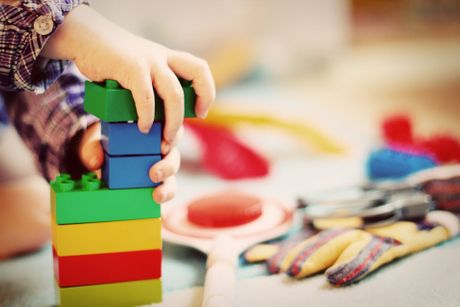
Belgrade kindergarten teacher forced boy to strip naked; case ended up before Strasbourg court
The case of child torture in one of Belgrade's kindergartens, which happened back in 2012, reached the European Court of Human Rights in Strasbourg - but even after its verdict, the incident was not closed.
Namely, although the Strasbourg court recently accepted a petition regarding the events from 2012 - where I.DJ., then a seven-year-old boy, was tortured in a Belgrade kindergarten when his teacher made him strip naked and sit in front of classmates - and ordered Serbia to pay EUR 7,500 in non-pecuniary damages, our country has paid the boy a considerably smaller amount.
A miscalculation on the part of those involved in the case, or a deliberate attempt to "save" money at the expense of a tortured child - that is the question that his representative is raising after the international court's decision.
The ugly event, that included Serbia in the European court's list of only a handful of countries where child torture occured outside of wartime hostilities, took place on April 18, 2012 in the Preschool Institution's kindergarten "Decji Dani."
Vojin Biljic, the authorized representative of the tortured boy, recounts all the things he faced as he tried to secure the payment of non-pecuniary damages to I.DJ., as compensation for what he experienced as a preschooler.

"On that day, at about 1:30 pm, the teacher instructed the boy to strip naked in front of the other children. Following her request, the child started crying and promising her that she would never make another mistake. As he wouldn't obey her, the teacher told his friend to order him to take his clothes off, but the boy refused, crying. The educator was persistent, so I.DJ. at one point undressed partially, after which he begged the teacher not to make him take the rest of his clothes off. She was, however, explicit in her intention, so the boy stripped naked. He then sat naked in front of the children in his group for 15 minutes," the attorney Biljic recounts the event.
As the parents complained over the teacher's behavior towards their child, she was fired, while the Preschool Institution "Decji Dani" filed a criminal complaint against her. According to the boy's representative, the teacher was never convicted for what she had done. Recognizing that their employee behaved unprofessionally, the Institution offered the boy's parents a compensation in the amount of 800,000 dinars. The parents accept the proposal and signed it. However, the Institution paid them 250,000 dinars instead of 800,000.
"In agreement with the deceived parents, we decided to submit a claim for non-pecuniary damages before the First Basic Court and request that it be determined that the boy had been tortured, referring to the European Court of Human Rights' case law, which considers such treatment of children as torture. Without going into the substance of the problem, and making a number of procedural errors, the judge dismissed our lawsuit. However, the Appellate Court acknowledged our appeal, overturned the verdict of the first instance court, and ordered a retrial. In the retrial, the judge denied our request once again, and we again appealed this decision. The Appellate Court, however, this time reversed the verdict and awarded 250,000 (dinars) in damages, but rejected our request to determine whether the child had been tortured," says Biljic.

Considering that this verdict was final, the lawyer, again in agreement with the parents, petitioned the Supreme Court of Cassation asking for a review of the proceedings, stating that a violation of basic human rights occurred in this case. At the same time, the boy's representative lodged a constitutional complaint alleging a violation of the right to a fair trial. Both the request for review and the constitutional complaint were rejected, creating the legal conditions to address the European Court of Human Rights.
"The court in Strasbourg accepted our petition and established the facts which, in addition to how the event took place and what its consequences have been, stated that the preschool institution paid the boy the dinar equivalent of 2,100 euros and that he received this amount in non-pecuniary damages paid by the competent domestic court. Seeing that the petition was accepted, the state offered us a settlement, i.e., to pay 7,500 euros for non-pecuniary damages, while the amount would be reduced by what had already been paid. In addition to these 7,500 euros, the Public Attorney's Office also offered to pay an extra 500 euros to cover court costs," the tortured child's representative said.
The parents, at his suggestion, accepted the offered settlement and signed it.
"According to a simple calculation, the state should pay about 3,300 euros, or 7,500 minus twice the amount of 2,100 that had been paid by then. However, the state paid him 'only' 2,367 euros," says Biljic.
Determining that there had been a 1,000 euro reduction of the amount, the boy's representative learned that the Public Attorney's Office, prior to the payment, asked the Preschool Institution "Decji Dani" how much money they had paid to the boy, and they replied that it was 3,500 rather than 2,100 euros.
"In those 3,500 euros they included the costs of the proceedings reimbursed to the child for attorneys' fees and court fees that have nothing to do with non-pecuniary damages, and then interest rate costs because they were late in executing the ruling, as well as the cost of the executive procedure. If the rule of law existed in Serbia, that difference which the boy has been denied should have been paid by the preschool institution because their actions led to the procedure. This, to my knowledge, is the first verdict that Serbia has not enforced," concluded the representative of the abused child.
Video: A nurse at childrens hospital in Zvecanska Street throws baby around, takes photos of childrens faces
(Telegraf.rs/Politika)
Video: Oskrnavljen spomenik jevrejskim žrtvama: Ovako danas izlgeda mesto gde su brutalno ubijani
Telegraf.rs zadržava sva prava nad sadržajem. Za preuzimanje sadržaja pogledajte uputstva na stranici Uslovi korišćenja.

